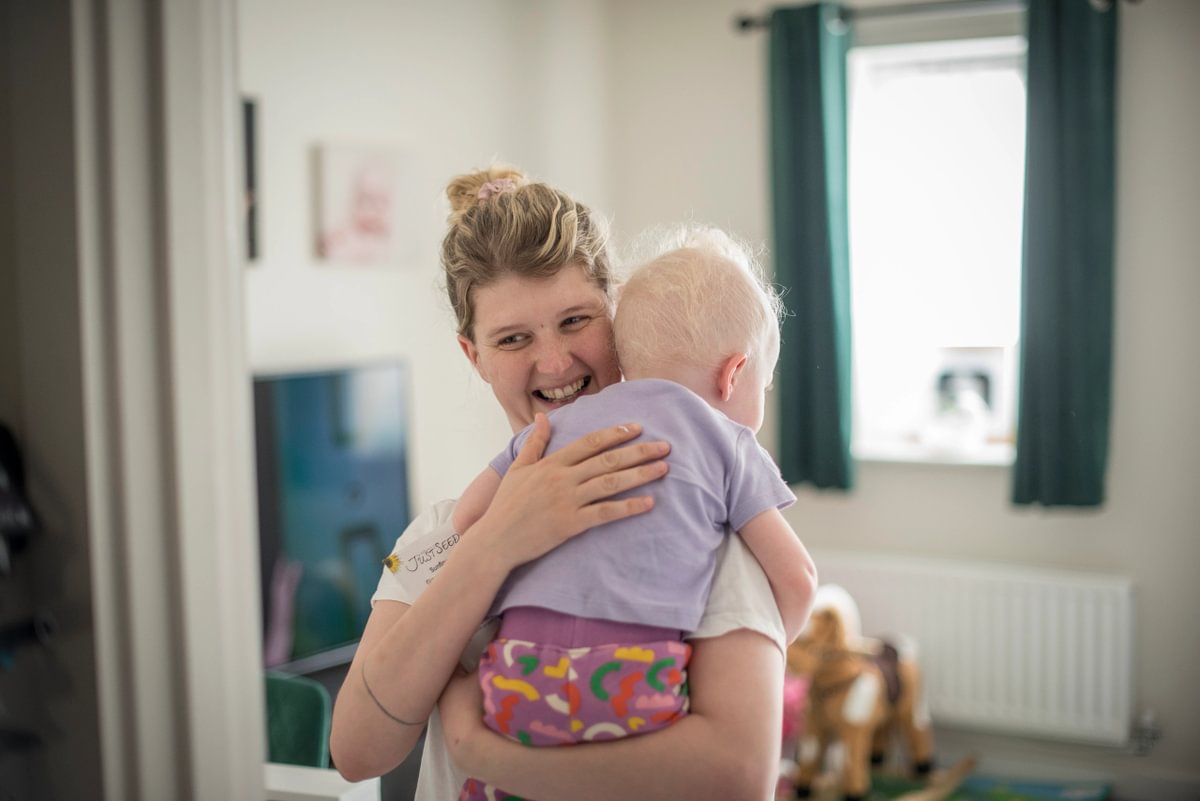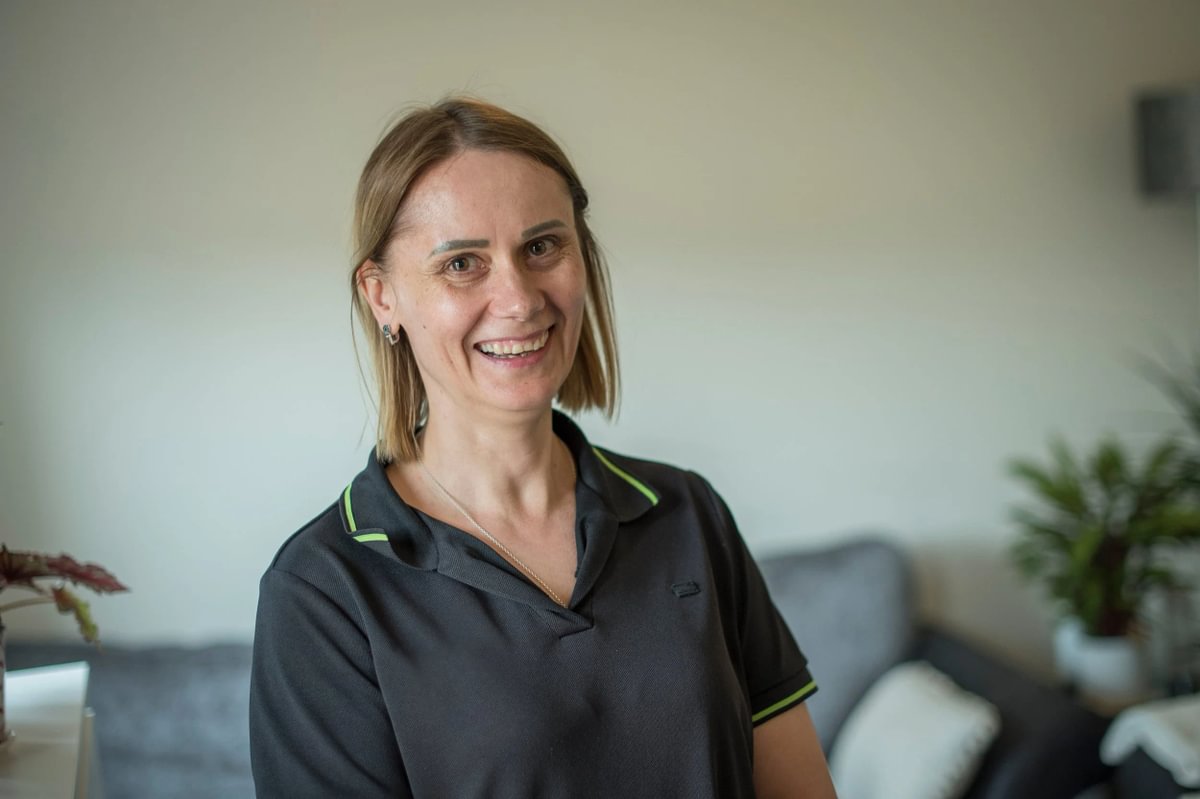What is Universal Credit?
Universal Credit, or UC for short, is a benefit for people of working age who are on a low income. You don’t have to be unemployed to qualify for UC. You can work and still get extra financial support.
The amount you get depends on what you earn.
UC replaces other benefits and tax credits, such as:
- Job Seekers Allowance
- Employment Support Allowance
- Income Support
- Child Tax Credits
- Working Tax Credit
- Housing Benefit
To qualify for UC, you’ll need to attend regular appointments at your local Job Centre.
How does Universal Credit work?
Once you’ve qualified for UC, you’ll receive one payment each month which includes all the elements you are entitled to, including any housing costs towards your rent.
So if your UC payment includes support for your rent, you’ll still need to pay Accent your rent manually.
If you’re working, there’s no limit to how many hours a week you can do if you claim UC. Instead, the amount gradually reduces as you earn more. So if you get a job, you won’t suddenly lose all your benefits.
Your money will come in on the same date each month. If the date falls on a weekend or bank holiday, it will be paid on the Friday before.
If you live with a partner and you both get UC, you’ll get one monthly joint payment for both of you paid into a single bank account.

Who’s eligible for Universal Credit?
To qualify for UC, you must be between the age of 18 and the State Pension age, which is currently 66.
You also can’t have savings or investments worth more than £16,000, or be in full-time education or training. However, there are exceptions in some circumstances. Find out more via the links below.

Find out what benefits you’re entitled to
Try our free benefits calculator now.
The calculator is free to use, and the details you provide are anonymous. If you need any help using the calculator please contact us.
Universal Credit information
Get more information about Universal Credit now, including claimant commitments, sanctions and bedroom tax.
How much money you receive depends on your household situation and income.
You can check your entitlement on our benefit calculator.
To apply for UC, you’ll need to make your claim through the government’s Universal Credit website.
Before you make your claim, read through the instructions on the government’s How to claim page.
If you don’t think you’ll be able to use the internet to make your claim, then please contact us as we might be able to provide you with some support
Once you’ve made your claim, you’ll need to prove your identity by taking a photo ID like a passport or a driver’s licence in to your nearest Job Centre. If you don’t have photo ID, the Job Centre will also accept things like bank cards, or proof of previous benefit claims.
At the end of your claim, you’ll be given a phone number to arrange your first appointment at the Job Centre.
To qualify for UC, you’ll need to sign your claimant commitment, which is a list of things you have to do to receive your money. If you don’t sign it, you will not be able to claim UC and you will not get any money. You’ll be asked to sign this at your first Job Centre appointment.
You must keep up with your claimant commitment and keep your account up to date with anything that changes. It’s also important to keep in touch with your work coach online.
Your claimant commitment may ask you to do things such as:
- search for jobs for 35 hours every week
- keep your account up to date with any changes
- take action on messages from your work coach through your online journal
- attend training sessions to improve your skills
Every month your claim will be assessed in line with your current circumstances. You must make sure you do the things you’ve said you’ll do. Otherwise, you might get a sanction and receive less money.
If you’re a couple, you may have different agreements with your work coach. If either of you do not do as you have agreed, you both may face a sanction.
If you’re worried about the terms of your claimant commitment, speak with your work coach and ask for them to be reviewed.
If you get a UC sanction, you will not get the personal element part of your payment, which means you’ll get less money.
If you think the sanction wasn’t fair, you can appeal it by logging an entry in your UC journal and contacting your work coach. If the appeal is turned down, you can ask for a manager to look at it.
We can help you do this – contact us via the form on our Contact us page.
When you first claim Universal Credit, you will not get your first payment for five weeks.
If you think this will be difficult for you to manage, you can apply for an advanced payment loan from the Job Centre which will help get money into your account sooner.
Your advanced payment loan might include your rent money, which you must pay to us.
If you do receive an advanced payment, try your best to use as little money as possible from it, as it all will need to be paid back. The less you have to pay back, the lower your future payments will be.
If you don’t know whether you should have an advance payment or not, speak to your work coach or contact us.
We can help you set up a Direct Debit that sends your rent to us at the same time as your monthly UC payment, so it happens automatically. To get help setting this up, contact us via the form on this page.
When you complete your application, say you rent your home from Accent and you must pay rent for your home as part of your tenancy agreement.
Depending on your circumstances, your payment may include money to help you pay your rent but this is not guaranteed.
You can find your up-to-date rent information on your MyAccount.
It’s important to pay your rent before other bills. If you don’t, and you fall into arrears, you could lose your home. If you need help with any debts, please call us on 0345 678 0555 or read our financial advice.
If you’re considered to have a room in your house that could be a spare bedroom, bedroom tax will mean you’ll get less money for the housing element of your UC payment. It’s sometimes called an underoccupancy charge.
To be affected by bedroom tax, you will need to be:
- working age
- classed as having a spare bedroom
- are a council or housing association tenant
You won’t be affected if you are of pension age, or your partner is of pension age and you live with them.
The housing element of your UC will be reduced by 14% for one spare bedroom, and 25% for two or more spare bedrooms.
For example, if your rent is £100 a week, the most benefit you will get to help with your rent is £86 if you have one spare room, or £75 if you have two spare rooms. Another example would be if your rent and service charge is £380 a month, your benefit will be cut by £53.20 a month for one extra bedroom and £95 a month for two extra bedrooms.
It’s up to you to pay the difference if the benefit you get is less than your rent.
If you are struggling to pay the bedroom tax then you can apply for discretionary housing payments, also known as a DHP. To request this, you’ll need to speak to your local council.
We can also provide advice on a DHP. Get in touch with us via the form on our Contact us page now.
The benefit cap is a limit on the total amount of benefit you can get, and varies from person to person according to individual circumstances.
It doesn’t apply to everyone, but most people between the age of 16 and State Pension age, which is currently 66, are affected by the benefit cap. If you are claiming UC you are earning at least the amount you would get for 16 hours per week at National Living Wage, you are exempt from the Benefit Cap.
The benefit cap is broken down into people living inside and outside of Greater London.
Benefit cap inside Greater London
Couples: £486.98 per week / £2,110.25 a month
Single parents with children living with you: £486.98 per week / £2,110.25 per month.
Single adults: £326.26 per week / £1,413.92 per month.
Benefit cap outside Greater London
Couples: £423.46 per week / £1,835 a month
Single parents with children living with you: £423.46 per week / £1,835 per month.
Single adults: £283.71 per week / £1,229.42 per month.
Which benefits are included in the cap?
The cap applies to the total amount of money you get from:
- child benefit
- child tax credit
- income support
- jobseeker’s allowance
- employment and support allowance (if you are in the work-related activity group)
- housing benefit
- maternity allowance
- bereavement allowance
- incapacity benefit
- severe disablement allowance
- widowed mother’s allowance
- widowed parent’s allowance
- widow’s pension
- Universal Credit (unless you receive the limited capacity for work and work-related activity element)
Which benefits are not included in the cap?
These benefits are not included:
- state pension credit
- state retirement pension
- statutory adoption pay
- statutory maternity pay
- statutory paternity pay
- statutory sick pay
- council tax reduction
- social fund payments
- discretionary housing payments
- bereavement payment
- non-cash benefits such as free school meals
- child maintenance payments
Is there anyone the cap doesn't apply to?
You are exempt from the benefit cap if you, your partner or your child under the age of 18 receive:
- Personal Independence Payment (PIP)
- Adult Disability Payment
- Disability Living Allowance (DLA)
- Child Disability Payment Scotland
You or your partner receive:
- Attendance Allowance
- Carer's Allowance
- Guardian's Allowance
- Carer's Element of Universal Credit
- Support component of Employment and Support Allowance
- Limited Capability for Work-Related Activity (LCWRA) element of Universal Credit
- Armed Forces Compensation Scheme Payments or War Pension Scheme payments
- Armed Forces Independence Payment
- Industrial Injuries Disablement Benefit
- War Disablement Pension
- War Widow's or Widower's Pension
You will also be exempt if
- you are claiming Universal Credit and you (and your partner) earn at least £722 per month before tax, national insurance and pension deductions
- you are claiming Housing Benefit and you (and your partner) receive Working Tax Credit, or qualify for it but your income is too high to receive any payment
- you and your partner are over State Pension age
- either you or your partner became State Pension age before 14 May 2019 and you are getting pension age Housing Benefit.
It can be hard to work out if this applies to you or not, so you should speak to an adviser if you're in this position.
Your local council should write to you if the benefit cap affects you. If you have questions, you can ring the government’s helpline on is 0345 600 072.
If you claim Disability Living Allowance or Personal Independence Payments, the benefit cap won’t apply. So if you, your partner, or your children have a health condition or disability, and you’re not claiming this benefit, check whether you can.
You might also want to consider looking for other work to supplement your payments – chat to your local Job Centre or speak with us by filling in the form on this page.
If you are struggling to pay your rent because of the benefits cap, then you can apply for discretionary housing payments, or DHP. To request this, you’ll need to speak to your local council.
We can also provide advice on DHP. Get in touch with us via the form on our Contact us page now.
If you have people living with you who are non-dependents, this will reduce the housing element of your UC payment.
Non-dependants include anyone over the age of 21 who isn't your partner. For each non-dependant living in your home, your payment will go down by £91.47 a month.
You’ll be exempt from this deduction if you or your non-dependant:
- are under 21
- get pension credit
- get a carer’s allowance
- are a prisoner
- is the carer of a child aged under five
- get Care Component of Disability Living Allowance
- get Attendance Allowance
- get the daily living component of Personal Independent Payment
If you or your non-dependent are entitled to the above payments because do not receive them because get support from elsewhere, then they’re exempt.
You’re also exempt if you have a child or step-child in the Armed Forces. To qualify for the deduction not to be made, the child or step-child in the Armed Forces must:
- be away on operations (including duty outside the UK, pre-deployment training and post-operation leave, also known as normalisation.)
- have been living at your home immediately before leaving to go on operations
- intends to return to the claimant’s home
You’re exempt from deductions to your housing element if you or your partner:
- are registered blind
- get Attendance Allowance
- get the Care Component of Disability Living Allowance
- get the daily living allowance of Personal Independent Payments
You’ll also be exempt if you’re entitled to one of these payments, but do not get it because they get support from somewhere else.
If you are not sure of the rules, or need help challenging a decision by Universal Credit, please get in touch with us via the form on our Contact us page, and we’ll be able to provide you with helpful advice and information.
We regularly review and update your rent, usually in April of each year. You should report the change in your rent to ensure you’re getting the right amount of UC.
We will write to you each year with details on your new rent and service charge, which you’ll then report to UC online.
How to report a change in your rent to UC
To report the change, log on to your online UC Journal.
On the home tab click on report a change in circumstances. Click the ‘where you live and what it costs’ tab. You’ll be asked ‘What has changed?’ Choose something else. You’ll now be asked the additional questions.
-
When did this change happen? Put in the date when your rent or service charges have changed or will change.
-
Where do you live now? Choose ‘I rent from a council or housing association.’
-
Do you have housing costs? Choose ‘yes’ if you’re named on the tenancy agreement.
-
How much rent do you pay? Put in the figure for your rent only, not any service charges. You’ll need to choose ‘how often you pay rent’ which is either weekly, fortnightly or monthly. If you are not sure about any of these details, please get in touch so we can help.
-
How much do you pay in service charges? If you pay service charges, put in how much you pay. You’ll also need to choose ‘how often you pay service charges’ which is also weekly, fortnightly or monthly. If you do not pay any service charges, put £0.00 in this section, but still choose either weekly, fortnightly or monthly, or you won’t be able to go any further.
-
Do you have any rent-free weeks? Say ‘no’ here as we do not have rent-free weeks.
-
Declaration: Check your answers and if you’re happy they are correct, choose ‘Yes I confirm these details are correct’. If you need any help to do this, please contact us.
If you’ve changed your address, you’ll need to let the Department for Work and Pensions (DWP) know through your online account.
You will need to pass on details of your new address and tenancy, including the start date, rent and service charges. We will give you this information before or on the day you sign up for your new Accent home.
We’ve provided a step-by-step guide below to updating your details, but if you’re still struggling, we’re here to help. Get in touch with us now via the form on our Contact us page.
How to report a change in your address to UC
To give details of your new address, log onto your online UC account.
On the home tab click on report a change in circumstances. Click the ‘where you live and what it costs tab. You’ll be asked ‘What has changed?’ Choose I’ve moved. You’ll now be asked the additional questions.
-
What’s your new address? Provide your new address and postcode.
-
Where do you live now? Choose ‘I rent from a council or housing association’
-
When did this change happen? Put in the date you moved or will be moving.
-
Do you have housing costs? Choose ‘Yes’ if you’re named on the tenancy agreement.
After choosing yes, you’ll then be asked housing cost questions.
-
How much rent do you pay? Put in the figure for the rent charge only (not service charges, even if you pay them) You’ll also need to choose ‘how often you pay rent’ which could be weekly, fortnightly or monthly. It will say how often you pay in your tenancy agreement.
-
How much do you pay for service charges? If you pay service charges, put the amount in you pay for them. You’ll also need to say ‘how often you pay service charges’ which is also weekly, fortnightly or monthly. If you do not pay any service charges, put £0.00 in this section, but still choose either weekly, fortnightly or monthly, or you won’t be able to go any further.
-
Do you have any rent-free weeks? Say ‘no’ here as we do not offer rent-free weeks.
It should now ask you if Accent Ltd is your landlord. If it does, say yes.
If it doesn’t, you’ll need to provide our head office address details: Accent Housing Charlestown House, Acorn Park Industrial Estate, Charlestown, Shipley, BD17 7SW Tel: 0345 678 0555 4.
-
How many bedrooms do you have? Put in the number of bedrooms, even if you don’t use them all as bedrooms.
-
Is anyone else on the tenancy agreement? Answer ‘no’ if you have a joint tenancy with your partner, and you have a joint UC claim. Only answer ‘yes’ if there’s someone else on the tenancy agreement who isn’t on your claim for UC.
-
Is your name on the council tax bill? Choose ‘yes’. If you need to register for council tax, please do this as soon as possible.
-
Have you applied for a reduction in your council tax bill? Answer truthfully, but if you haven’t claimed council tax support yet, make sure you do so as soon as possible via your local council, as this is separate from your UC claim.
-
Declaration: Check your answers and if you’re happy they are correct, choose ‘Yes I confirm these details are correct’. It’s a good idea to supply all this information before, or on the day, you collect your keys for your new home. If you need any help to do this, please contact us.




